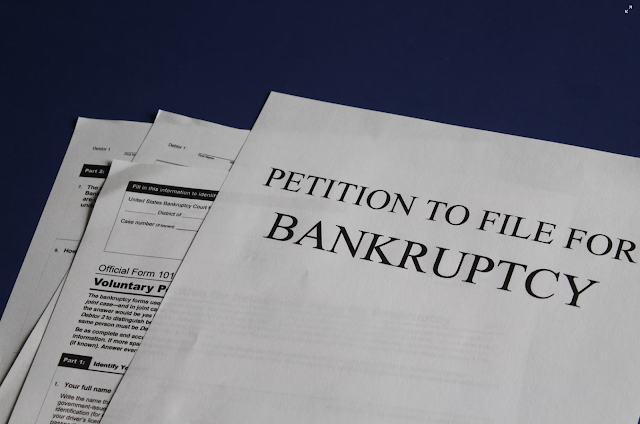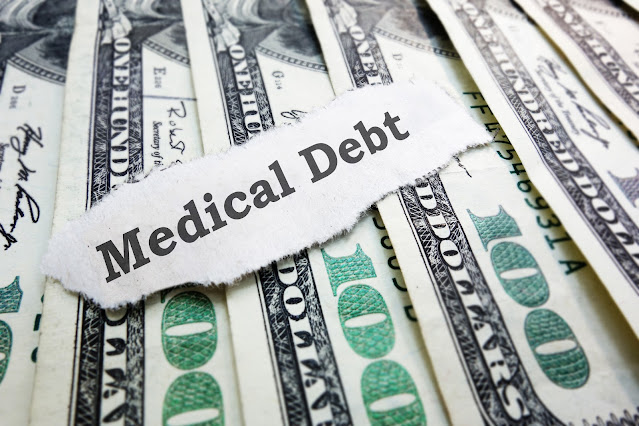Many individuals and families face financial challenges that seem insurmountable. But there is a solution that may provide relief and a fresh start: filing for bankruptcy.
While it may seem intimidating, there are certain signs that indicate bankruptcy may be necessary for your financial well-being. In this article, we'll discuss seven signs that could signal it's time to consider filing for bankruptcy.
One of the first signs that bankruptcy may be necessary is if you are consistently unable to make timely payments on your bills. This can include credit card payments, mortgage or rent payments, utility bills, and any other monthly expenses.
Using credit cards for everyday expenses and then struggling to pay off the balances is a common issue for those facing financial difficulties. If you have reached the maximum limit on your credit cards and are still unable to make payments, it may be time to consider filing for bankruptcy in order to eliminate or reduce this debt.
If you're not yet at the point of considering bankruptcy, there are steps you can take to start paying off your credit card debt. Begin by creating a budget and cutting back on unnecessary expenses. This will allow you to allocate more money towards your credit card payments.
Aside from considering bankruptcy, there are also ways to make a bit of extra money where you can in order to help alleviate some financial stress.
You Can't Pay Your Bills on Time
One of the first signs that bankruptcy may be necessary is if you are consistently unable to make timely payments on your bills. This can include credit card payments, mortgage or rent payments, utility bills, and any other monthly expenses.
If you find yourself constantly juggling due dates and struggling to make ends meet, it may be time to seek help through bankruptcy.
Even if you're able to make minimum payments on your debts, they may still continue to grow due to high interest rates and fees. This can quickly lead to a cycle of debt that becomes difficult to escape.
Your Debt is Increasing Despite Your Efforts
Even if you're able to make minimum payments on your debts, they may still continue to grow due to high interest rates and fees. This can quickly lead to a cycle of debt that becomes difficult to escape.
If your efforts to pay off your debts are not making a significant impact, bankruptcy may be the only way to get out from under them.
If you are considering bankruptcy, be sure to talk to a professional before making any decisions. Your first point of contact should be with a bankruptcy attorney, such as someone at Knollmeyer Law Office, PA, who can assess your financial situation and advise you on the best course of action.
If you are considering bankruptcy, be sure to talk to a professional before making any decisions. Your first point of contact should be with a bankruptcy attorney, such as someone at Knollmeyer Law Office, PA, who can assess your financial situation and advise you on the best course of action.
They can also guide you through the legal process and ensure that all necessary paperwork is completed correctly.
You've Maxed-Out Your Credit Cards
Using credit cards for everyday expenses and then struggling to pay off the balances is a common issue for those facing financial difficulties. If you have reached the maximum limit on your credit cards and are still unable to make payments, it may be time to consider filing for bankruptcy in order to eliminate or reduce this debt.
If you're not yet at the point of considering bankruptcy, there are steps you can take to start paying off your credit card debt. Begin by creating a budget and cutting back on unnecessary expenses. This will allow you to allocate more money towards your credit card payments.
You can also contact your credit card companies to negotiate lower interest rates or set up a payment plan. Seeking guidance from a financial advisor or credit counselor can also be beneficial in creating a structure.
Constant calls and letters from collection agencies can be overwhelming and stressful. If your debts have been turned over to collection agencies, it may be a sign that bankruptcy is necessary to stop the harassment and resolve the debt.
Understand that collection calls are a common tactic used by creditors to pressure individuals into paying their debts. However, you have legal rights and protections against these tactics.
You're Receiving Calls from Collection Agencies
Constant calls and letters from collection agencies can be overwhelming and stressful. If your debts have been turned over to collection agencies, it may be a sign that bankruptcy is necessary to stop the harassment and resolve the debt.
Understand that collection calls are a common tactic used by creditors to pressure individuals into paying their debts. However, you have legal rights and protections against these tactics.
Remain calm and assertive when speaking to collection agencies, and do not give in to their demands or threats. It may also be helpful to keep records of all communication with the collection agency and seek guidance from a bankruptcy attorney on how to handle these situations.
If you are behind on mortgage or car payments, you may be at risk of losing these assets through foreclosure or repossession. Filing for bankruptcy can provide an automatic stay, which temporarily halts any legal action against you and gives you time to develop a plan to keep your home or vehicle.
A sudden loss of income can have a major impact on your ability to keep up with expenses and pay off debts. If you have experienced a significant decrease in income, bankruptcy may be necessary to help you get back on track financially.
You're Facing Foreclosure or Repossession
If you are behind on mortgage or car payments, you may be at risk of losing these assets through foreclosure or repossession. Filing for bankruptcy can provide an automatic stay, which temporarily halts any legal action against you and gives you time to develop a plan to keep your home or vehicle.
Your Income Has Decreased Significantly
A sudden loss of income can have a major impact on your ability to keep up with expenses and pay off debts. If you have experienced a significant decrease in income, bankruptcy may be necessary to help you get back on track financially.
Aside from considering bankruptcy, there are also ways to make a bit of extra money where you can in order to help alleviate some financial stress.
One option is picking up a side hustle or freelance work in your spare time. This could include anything from driving for a ride-sharing service to selling items online. You could also reach out to friends and family for odd jobs or offering services such as pet-sitting or tutoring.
Another option is finding ways to save money on expenses, such as cutting back on unnecessary subscriptions or negotiating lower rates on bills. Every little bit helps when it comes to improving your financial situation.
Dipping into retirement savings or emergency funds may seem like a viable option to pay off debt, but it can have long-term consequences on your financial stability. Filing for bankruptcy can help protect these assets and provide a more structured approach to managing your debt.
Remember, filing for bankruptcy is not a decision to take lightly. Try to consult with a bankruptcy attorney to fully understand the process and determine if it is the right option for your specific situation.
You're Dipping Into Retirement Savings or Emergency Funds
Dipping into retirement savings or emergency funds may seem like a viable option to pay off debt, but it can have long-term consequences on your financial stability. Filing for bankruptcy can help protect these assets and provide a more structured approach to managing your debt.
Final Thoughts
Remember, filing for bankruptcy is not a decision to take lightly. Try to consult with a bankruptcy attorney to fully understand the process and determine if it is the right option for your specific situation.
Bankruptcy can provide relief from overwhelming debt and give you a fresh start, but it's not a one-size-fits-all solution.
By recognizing these signs and seeking professional guidance, you can make an informed decision about whether filing for bankruptcy is necessary for your financial well-being.














